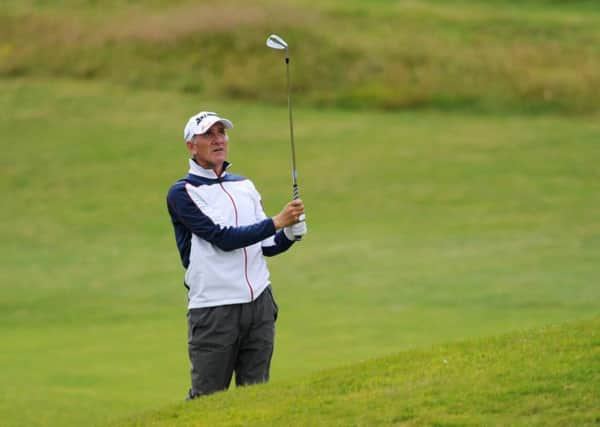Euan McIntosh eyeing second crack at professional game


”How long have you got?” quipped McIntosh in reply to being asked about his biggest regret from an unsuccessful spell in the paid game, having turned professional on the back of a pretty decent amateur career only for that decision to ultimately lead him to packing golf in altogether for around ten years.
With that in mind, what Glasgow-born McIntosh achieved this season was pretty remarkable. Helped by six top-ten finishes in ten events, he had the Scottish Order of Merit title already wrapped up before winning the final counting tournament, the South East District Open at Royal Musselburgh. Add in a return to the Scotland side after a 27-year absence for the Home Internationals at Nairn and McIntosh, like Barry Hume, is helping to revitalise the domestic amateur scene, even though McIntosh makes no secret that it is a means to an end for him.
Advertisement
Hide AdAdvertisement
Hide Ad“My main aim is the Senior Tour when I turn 50 – that’s why I’m putting in all this hard work,” he said in helping to launch Scottish Golf’s new Ping Scottish Mixed Championship at Gleneagles. “I messed it up when I was younger. Everything I try to do now is an attempt to make up for messing it up then.
“One of the things I learned was that you can’t just do it off talent. I just didn’t work hard enough. I’d be going out at nights too often, even during events, and that was ridiculous. Now I know what I need to do to be successful. As soon as I started playing again, I got that feeling inside of, ‘wow, this if fantastic’. I’m more motivated now than I have ever been. I think I’m still pretty fit. I’ve lost a bit of distance but not a lot, so if I continue to work on the right things, swing wise etc, anything is possible. You’ve just got to believe that. There could still be a fairytale ending, I certainly hope so, but, of course, it’s a nightmare trying to get on the Senior Tour.”
McIntosh, who will begin his 2017 campaign with a trip to Argentina next month for the South American Amateur, has been impressed with the current crop of young Scottish amateurs, insisting that they are “a lot better than what I was at that age”. He’s well aware, though, that the transition from amateur to professional has become a real problem in the home of golf and, indeed, found that out for himself.
“At 19 or 20, I probably stopped working hard enough,” he reflected. “You knew you probably weren’t doing the right things. When we were at a Tour School final, let’s say, you would see how the Swedish guys would do it as opposed to how we would do it. They would go away as a group. The Swedish Golf Federation or whoever would take the guys who were coming through from amateur golf who were turning pro and integrate them with the guys who were already pros.
“I remember playing at the European Boys in Turin sitting next to a Swedish guy and I was drinking a coke and he asked why I was doing that because it contains caffeine. I said it was because I liked it. But he said I shouldn’t be drinking coke because of the caffeine and pointed out they weren’t allowed caffeine. That was when I was 16 and if you are doing what the Swedes were at that age to that extreme you are going to produce successful people.
“There needs to be more integration in Scotland and the guys need to get looked after, whether it’s by the PGA or whoever when they are turning pro. The first year is a nightmare. The really good guys get their card right away, but the others who are maybe good enough to get their card two or three years down the line are gone. They don’t get any help. In general terms, great golfers disappear.”